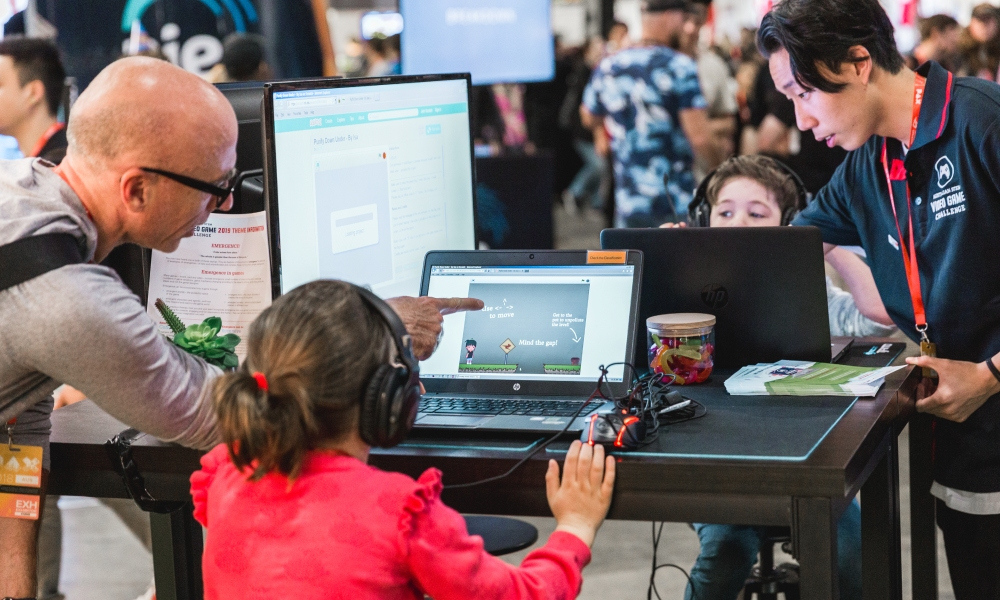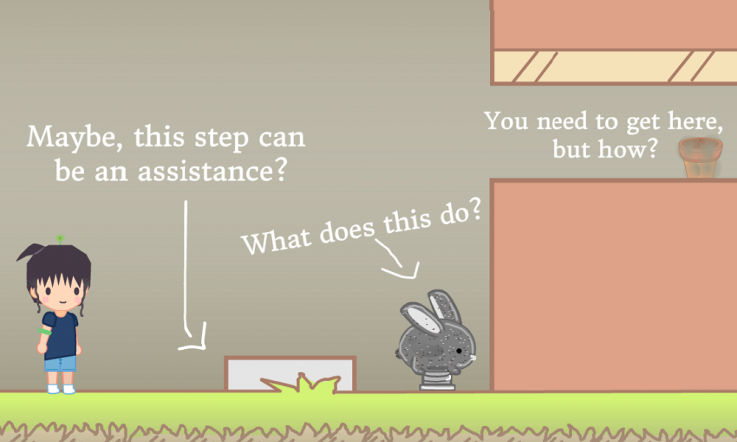Are you looking for an authentic learning activity to help engage your students in STEM disciplines? Registrations open today for the annual Australian STEM Video Game Challenge.
The theme for this year's challenge – which invites students in Australia to create their own original video game – is ‘Emergence'. The challenge is managed by the ACER Foundation, the charitable arm of the Australian Council for Educational Research (ACER).
Students in Years 5-12 interpret the theme, then design, create and test their own playable video game either individually or as part of a team. Each entry must be supported by a designated mentor, which is usually a teacher.
For Dr Grant Pusey of Churchlands Senior High School (SHS) in Western Australia, mentoring students to create their own video game from scratch has helped him provide them with an authentic learning experience, take ownership of tasks and encourage female participation in STEM. He's mentored winning student teams for three consecutive years.
‘Being a mentor is much easier than it sounds,' Pusey tells Teacher. ‘Sometimes I help debug student work, or offer suggestions for improvement, but most of the time the students are working with their peers while I sit on the sidelines.'
You don't need to be an expert in game development to mentor a team of students. A mentor handbook and teacher learning pack are available to support mentors who might be new to the challenge. They provide information on the different game development platforms and outlines curriculum links.
‘Mentoring students through the process of the Australian STEM Video Game challenge offers students another perspective of who I am. I'm able to share my passion for Physics, coding and games with students, rather than have them see me as “just another Science teacher” delivering a set curriculum. Since many games incorporate concepts from Science, especially Physics, the links make Science learning more authentic, as students can see the value in what they're learning.'
Encouraging out-of-class STEM participation
Pusey is also the STEM Coordinator at Churchlands SHS, which has him coordinating a STEM elective course and a STEM club for students. ‘The STEM elective course is a unique opportunity for students to work on a project of their own choice, so long as there is genuine STEM learning taking place,' he explains. ‘Students define their own learning goals by planning and carrying out work on their own project. Some students decide they want to make a drone, learn 3D printing, or take on a robotics project.'
Although many students struggle at first with the level of freedom they're given during this time, Pusey says after their projects are complete, they are tremendously satisfied with this learning experience.
‘For the first six months I was bringing in my own gadgets from home and conducting cheap or free activities using the school laptops. I created activities in Minecraft for the students to compete in and challenged students to start making games … the uptake on video game design in STEM Club was huge, and this is when I looked deeper and discovered the Australian STEM Video Game Challenge.'
Striving for gender equality in STEM
Churchlands SHS had two teams named winners in the 2018 Australian STEM Video Game Challenge, and both teams were entirely made up of female members. Pusey says getting girls involved in STEM is a priority at the school.
‘I think it's important to highlight equality at the very beginning – for example, the posters I use to promote the subject all feature boys and girls. It's just as much about encouraging boys to welcome girls, as it is to encourage girls to come along.
‘I find that more inclusive STEM classes are achieved by sharing the great work of the students to their peers and initiating conversations about their individual projects. This demonstrates respect and sometimes even sparks collaboration between the boys and girls.
‘From that point on, the classroom becomes more inclusive.'
Dr Grant Pusey says he makes a conscious effort to promote the school’s STEM Club to boys and girls equally in order to highlight equality in STEM from the very beginning. Think about your school context: what considerations are made in terms of how extra-curricular STEM activities are promoted to your students?
You can register for the 2019 Australian STEM Video Game Challenge on the official site.



